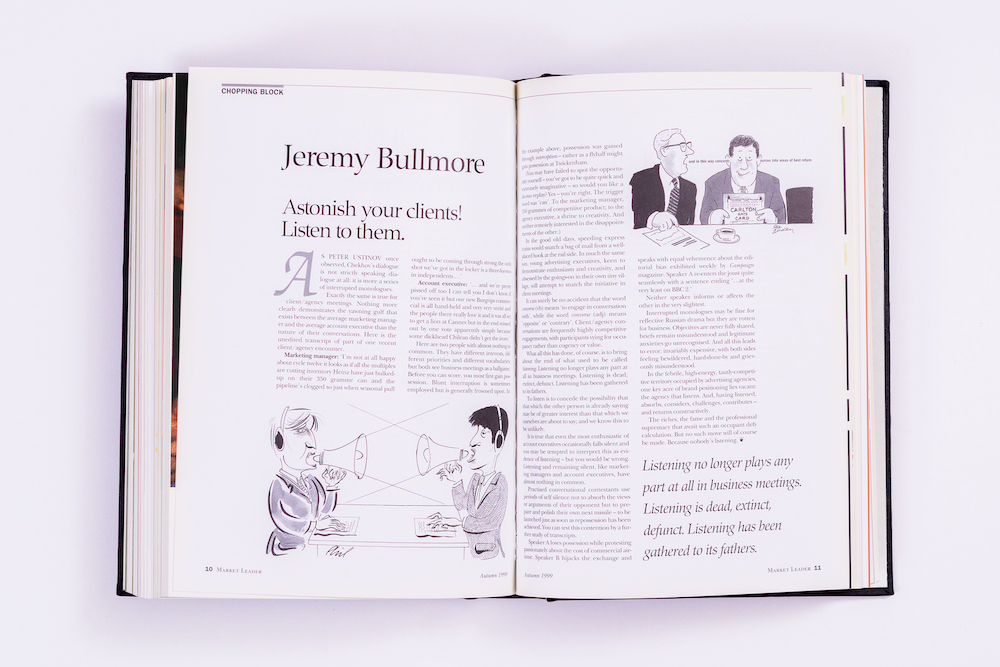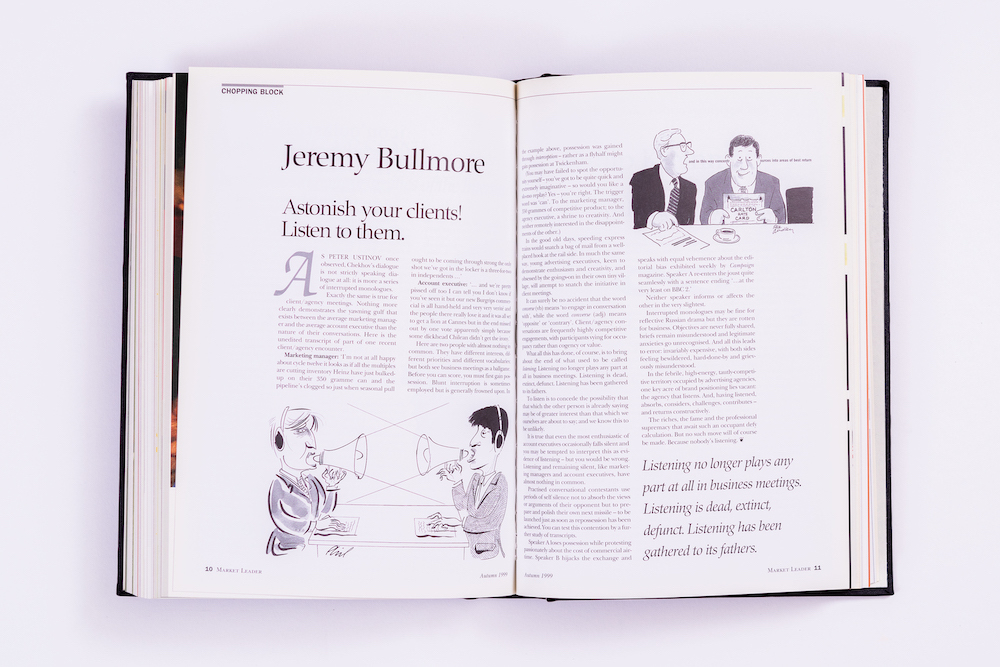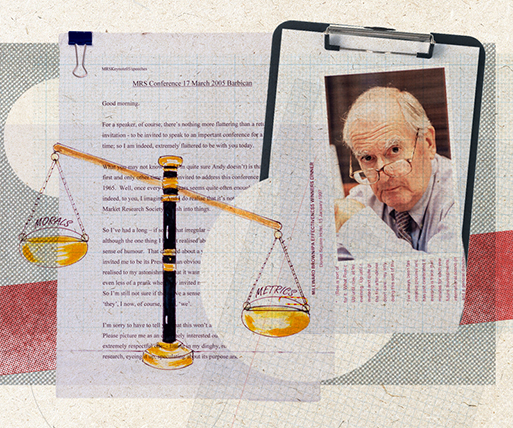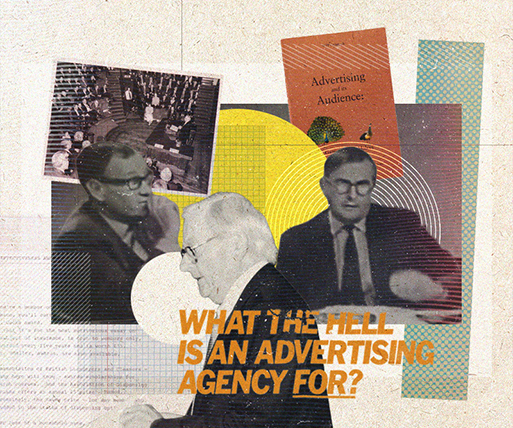Astonish your clients! Listen to them! 1999
- Date: 1999
- Publisher: Market Leader
- PEOPLE
Too often, observed Jeremy, people are so eager to bring their agenda to everyone else's attention that conversations in meetings consist of a series of interrupted monologues.
Astonish Your Clients! Listen To Them
As Peter Ustinov once observed, Chekhov’s dialogue is not strictly speaking dialogue at all: it is more a series of interrupted monologues.
The same is true for client/agency meetings. Nothing more clearly demonstrates the yawning gulf that exists between the average marketing manager and the average account executive than the nature of their conversations. Here is the unedited transcript of part of one recent client/agency encounter.
Marketing manager: ”I’m not at all happy about cycle twelve it looks as if all the multiples are cutting inventory Heinz have just bulked-up on their 350 gramme can and the pipeline’s clogged so just when seasonal pull ought to be coming through strong the only shot we’ve got in the locker is a three-for-two in independents.”
Account executive: “And were pretty pissed off too I can tell you I don’t know if you’ve seen it but our new Burgrips commercial is all hand-held and very verité and the people there really love it and it was all set to get a Lion at Cannes but in the end missed out by one vote apparently simply because some dickhead Chilean didn’t get the irony.”
Here are two people with almost nothing in common. They have different interests, different priorities and different vocabularies; but both see business meetings as a ballgame. Before you can score, you must first gain possession. Blunt interruption is sometimes employed but is generally frowned upon. In the example above, possession was gained through interception rather as a flyhalf might gain possession at Twickenham.
(You may have failed to spot the opportunity yourself you’ve got to be quite quick and extremely imaginative so would you like a slo-mo replay? Yes, you’re right. The trigger word was can. To the marketing manager, 350 grammes of competitive product; to the agency executive, a shrine to creativity. And neither remotely interested in the disappointments of the other.)
In the good old days, speeding express trains would snatch a bag of mail from a well-placed hook at the rail side. In much the same way, young advertising executives, keen to demonstrate enthusiasm and creativity, and obsessed by the goings-on in their own tiny village, will attempt to snatch the initiative in client meetings.
It can surely be no accident that the word converse (vb) means to engage in conversation with, while the word converse (adj) means opposite or contrary. Client/agency conversations are frequently highly competitive engagements, with participants vying for occupancy rather than cogency or value.
What all this has done, of course, is to bring about the end of what used to be called listening. Listening no longer plays any part at all in business meetings. Listening is dead, extinct, defunct. Listening has been gathered to its fathers.
To listen is to concede the possibility that that which the other person is already saying may be of greater interest than that which we ourselves are about to say; and we know this to be unlikely.
It is true that even the most enthusiastic of account executives occasionally falls silent and you may be tempted to interpret this as evidence of listening, but you would be wrong. Listening and remaining silent, like marketing managers and account executives, have almost nothing in common.
Practised conversational contestants use periods of self silence not to absorb the views or arguments of their opponent but to prepare and polish their own next missile to be launched just as soon as repossession has been achieved. You can test this contention by a further study of transcripts.
Speaker A loses possession while protesting passionately about the cost of commercial airtime. Speaker B hijacks the exchange and speaks with equal vehemence about the editorial bias exhibited weekly by Campaign magazine. Speaker A re-enters the joust quite seamlessly with a sentence ending at the very least on BBC2.
Neither speaker informs or affects the other in the very slightest.
Interrupted monologues may be fine for reflective Russian drama but they are rotten for business. Objectives are never fully shared, briefs remain misunderstood and legitimate anxieties go unrecognised. And all this leads to error: invariably expensive, with both sides feeling bewildered, hard-done-by and grievously misunderstood.
In the febrile, high-energy, tautly-competitive territory occupied by advertising agencies, one key acre of brand positioning lies vacant: the agency that listens. And, having listened, absorbs, considers, challenges, contributes and returns constructively.
The riches, the fame and the professional supremacy that await such an occupant defy calculation. But no such move will of course be made. Because nobody’s listening.





